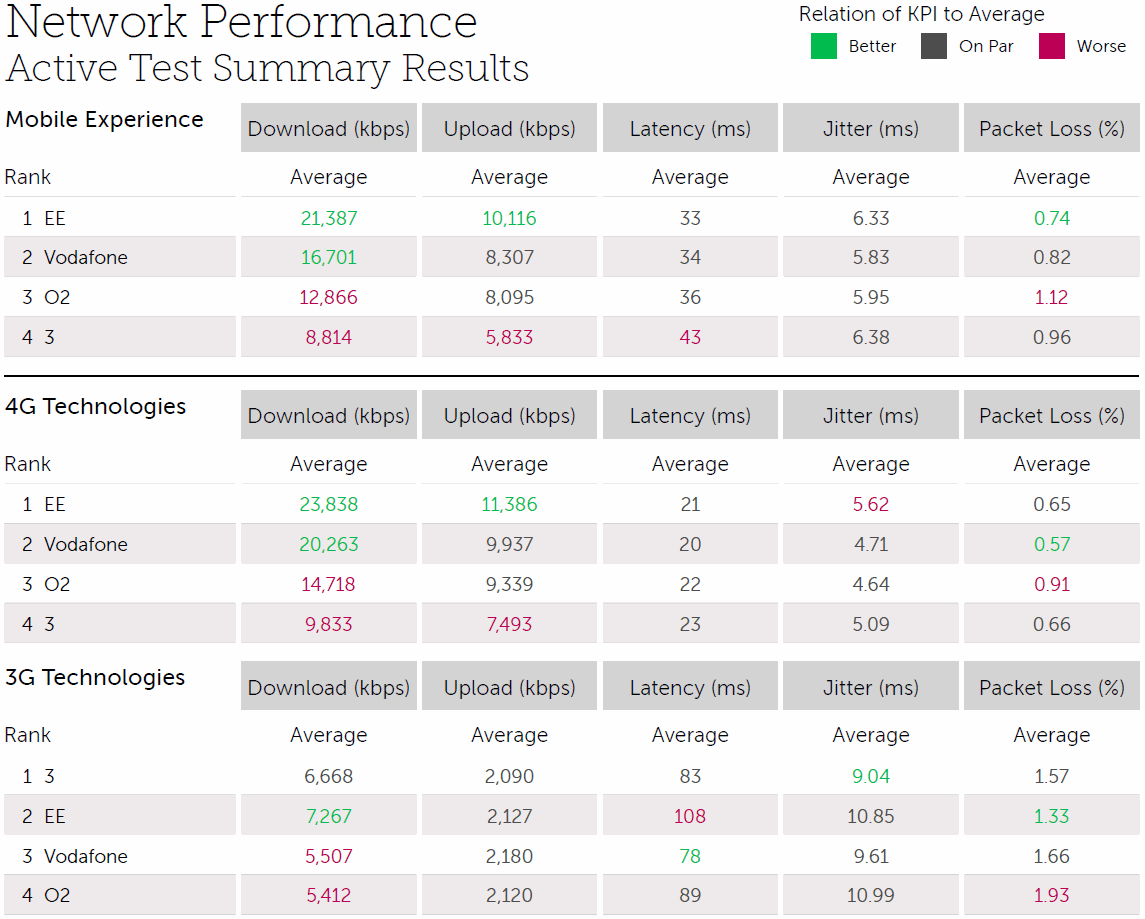Tutela Name Fastest UK 4G and 3G Mobile Operators for August 2018
New research from crowd-sourced data analysis company Tutela has revealed how O2, EE, Three UK and Vodafone performed – in terms of 3G and 4G mobile data (mobile broadband) connectivity – during August 2018. As usual two operators appear to dominate the results table more than most.
The research itself was conducted by gathering anonymous usage data from the background of 1,500+ supporting Android and iOS based Smartphone apps, which during last month produced a total of 10.1 billion measurements, 261 million records, 630,000 speedtests and 38 million response tests. This is roughly four times the amount of data processed for the last study we covered in May 2018 (here).
Overall the results actually haven’t changed all that much since the last report and performance has actually dropped a little in some areas. Perhaps unsurprisingly EE is still top of the table with an average 4G and 3G download speed of 21.38Mbps and an average upload of 10.11Mbps, while Vodafone trails in second place on 16.70Mbps down and 8.30Mbps up.
Advertisement
Sadly the results for O2 and Three UK aren’t so good and the latter is particularly weak. On the other hand it’s likely that if the same study is conducted next year then O2 may well see some improvement from the roll-out of their new 2.3GHz spectrum band, which is already showing a lot of promise in the few areas where it has now become available (here).

As usual it’s worth considering that some networks, such as EE, have better geographic 4G coverage, more spectrum bands and a more advanced network setup than their rivals, although Vodafone aren’t far off and it shows. Similarly operators like Three UK may suffer more strain on their data capacity (network congestion) because of affordable “all-you-can-eat” style data plans, which are a capacity hog but also make them attractive for consumers.
On top of that testing via non-dedicated apps may be less accurate than dedicate solutions (e.g. Opensignal). Meanwhile crowd-sourced data can also be affected by the user’s location and any limitations of the device being used, which won’t have a common type of hardware for helping to form a solid baseline. Suffice to say that performance testing like this may not always tell the whole story but it’s still a useful bit of extra information.
Advertisement
Going forwards it’s entirely possible that the situation with future 5G mobile networks could change the current trend, not least with the likes of Three UK appearing to stockpile 5G friendly radio spectrum bands in order to help them compete more effectively with rivals. The first limited commercial deployments of 5G will begin later in 2019, although the main commercial roll-out won’t start until 2020.
Mark is a professional technology writer, IT consultant and computer engineer from Dorset (England), he also founded ISPreview in 1999 and enjoys analysing the latest telecoms and broadband developments. Find me on X (Twitter), Mastodon, Facebook, BlueSky, Threads.net and Linkedin.
« Delayed 4G Emergency Services Network Adopts Phased Roll-out

















































Comments are closed